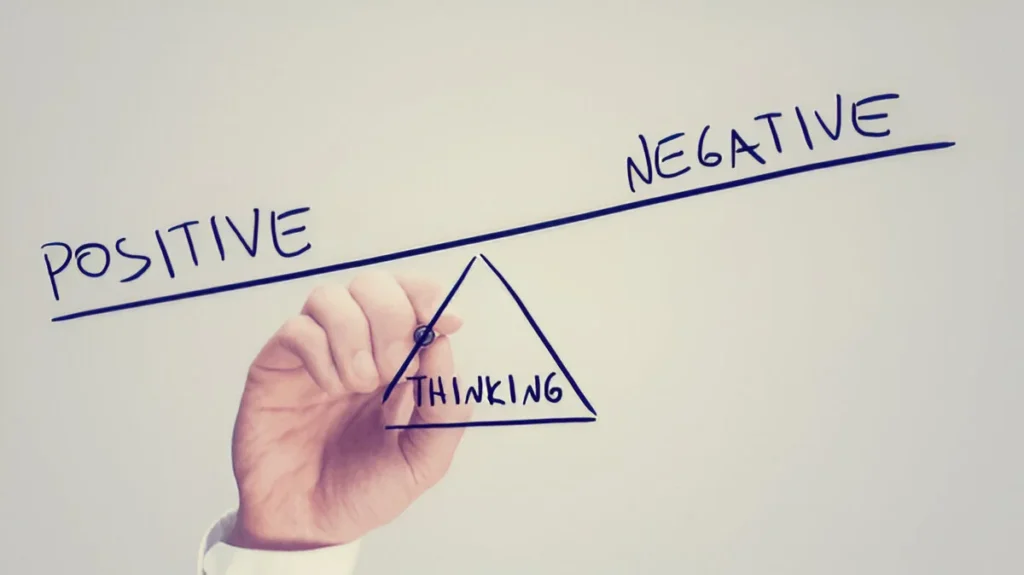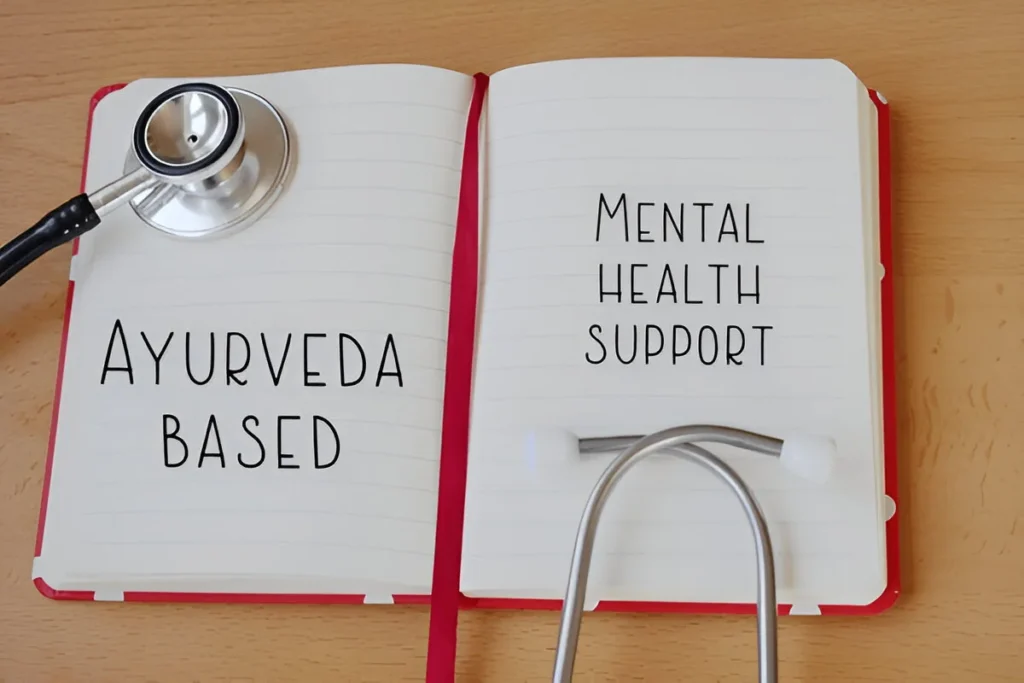-
129, Block-A Bangur Avenue, Mousumi Appartment, Kolkata 700055
129, Block-A Bangur Avenue, Mousumi Appartment, Kolkata 700055

Emotional self-care is vital for mental balance and overall wellbeing. Discover how to begin your journey with guidance from a reputed psychological counselor. In today’s fast-paced world, stress and emotional exhaustion have become a part of daily life. Between deadlines, relationships, and responsibilities, many people forget to care for their inner selves. Just as physical exercise keeps the body fit, emotional self-care nurtures the mind and spirit. Why Emotional Self-Care MattersWhere to Start Emotional Self-Care Daily1. Begin With Self-Awareness2. Create Boundaries Without Guilt3. Practice Mindfulness and Breathing4. Prioritize Restful Sleep5. Nurture Relationships That Uplift You6. Engage in Creative Outlets7. Move Your Body Regularly8. Seek Professional GuidanceSimple Daily Habits for Emotional Self-CareFAQs About Emotional Self-CareA Final Word on Building Inner StrengthChoosing Yourself Every Day But here’s the question many ask: Where should you start? Beginning emotional self-care doesn’t require drastic changes—it’s about building small, intentional habits that strengthen resilience, clarity, and peace of mind. Why Emotional Self-Care Matters Emotional wellbeing is the foundation for a healthier, more balanced life. Ignoring it can lead to: Burnout and chronic stress Anxiety and depression Strained personal relationships Decreased productivity and focus When you invest in emotional self-care, you improve not only your mental health but also your physical health and overall happiness. Where to Start Emotional Self-Care Daily 1. Begin With Self-Awareness Awareness is the first step toward growth. Take a few minutes daily to check in with yourself. Ask simple questions: How am I feeling right now? What triggered these emotions? What can I do to nurture myself today? Journaling these thoughts can make emotions more manageable and clearer. 2. Create Boundaries Without Guilt Learning to say “no” is powerful. Boundaries protect your energy and allow you to focus on what truly matters. This includes: Limiting social media exposure Reducing interaction with toxic influences Prioritizing personal rest time 3. Practice Mindfulness and Breathing Mindfulness doesn’t mean long meditation sessions. It can start small: Deep breathing exercises during work breaks A 5-minute mindfulness walk Focusing on gratitude before bedtime These practices calm the nervous system and help manage overwhelming emotions. 4. Prioritize Restful Sleep Sleep is the natural healer. Poor sleep patterns worsen stress and mood swings. Aim to: Keep a consistent bedtime Limit screen time before bed Create a calming routine like reading or light stretching 5. Nurture Relationships That Uplift You Surround yourself with people who make you feel valued. Emotional support...

Childhood trauma impact can affect emotions, relationships, and health. Discover how a professional counselor supports individuals in their healing and personal growth. Understanding the Depth of Childhood TraumaEmotional Effects of Childhood Trauma in AdultsHow Childhood Trauma Impacts RelationshipsThe Link Between Trauma and Physical HealthThe Role of Coping MechanismsHealing from Childhood TraumaSelf-AwarenessBuilding Healthy BoundariesTherapy and CounselingSupportive RelationshipsHow a Psychological Counselor Can HelpFAQs on Childhood Trauma ImpactMoving Forward with Understanding and Healing Understanding the Depth of Childhood Trauma Childhood is often described as the foundation of a person’s future. The environment, experiences, and emotional nurturing that a child receives during their formative years can shape how they perceive the world as adults. When that foundation is disrupted by trauma—whether through neglect, abuse, loss, or other distressing experiences—the effects can last well into adulthood. The childhood trauma impact on an individual isn’t just emotional; it can also manifest in behavioral, social, and even physical ways. While some people may develop resilience, others may carry invisible wounds that silently influence their everyday lives. Emotional Effects of Childhood Trauma in Adults Adults who experienced trauma as children often struggle with complex emotions. This is because traumatic experiences can interfere with the brain’s natural ability to regulate feelings. Common emotional outcomes include: Difficulty managing anger or sadness Low self-esteem and feelings of worthlessness Anxiety and fear in safe environments Persistent feelings of guilt or shame These emotional struggles often affect personal relationships, careers, and even physical health. How Childhood Trauma Impacts Relationships Healthy relationships are built on trust, empathy, and open communication. However, the childhood trauma impact on adult relationships can make this challenging. Adults with unresolved trauma may: Struggle to trust their partners Feel intense fear of abandonment Experience codependency or avoidance Have difficulty expressing love or vulnerability Such patterns can create cycles where trauma survivors either withdraw from intimacy or cling too tightly to others, leading to imbalance. The Link Between Trauma and Physical Health One of the lesser-known effects of trauma is its connection to physical health. Studies show that unresolved childhood trauma can increase the risk of: Chronic illnesses such as heart disease or diabetes Weakened immune system Sleep disorders Substance abuse or unhealthy coping mechanisms This happens because trauma activates the body’s stress response repeatedly, leading to long-term wear and tear. The Role of Coping Mechanisms Not all coping strategies are harmful. Some survivors find positive outlets like art, writing, or...

Build emotional strength with daily habits that improve resilience, clarity, and balance. Learn expert counselor backed strategies for lasting mental wellbeing. Understanding Emotional Strength Emotional strength isn’t about suppressing feelings or appearing unshaken by life’s challenges. Instead, it is the ability to navigate stress, setbacks, and uncertainties with resilience and clarity. Developing this strength is like exercising a muscle—it grows stronger when practiced consistently through mindful habits. Understanding Emotional StrengthWhy Emotional Strength Matters in Daily LifeSimple Habits to Build Emotional Strength1. Practice Self-Awareness2. Develop a Mindful Morning Routine3. Strengthen Social Connections4. Build Emotional Strength Through Physical Habits5. Reframe Negative Thoughts6. Cultivate Resilience Through Problem-Solving7. Seek Professional Guidance When NeededExpert Perspective: Why Habits Matter More Than Quick FixesFAQs on Building Emotional StrengthEmotional Strength Grows Through Mindful Habits and Resilience Research in psychology shows that individuals who focus on emotional wellbeing experience: Better mental health and reduced anxiety Improved relationships Enhanced decision-making abilities Greater adaptability during crises Building such resilience requires small yet powerful lifestyle shifts. Let’s explore how. Why Emotional Strength Matters in Daily Life Everyday life brings multiple stressors—deadlines, relationship conflicts, health concerns, or financial pressures. Emotional strength helps you: Stay calm under stress rather than feeling overwhelmed Process emotions healthily instead of suppressing them Maintain balance in relationships without burnout Adapt to unexpected changes with clarity Without nurturing this inner strength, even minor challenges can feel like unmanageable burdens. Simple Habits to Build Emotional Strength 1. Practice Self-Awareness Self-awareness is the foundation of emotional resilience. By identifying your thoughts, triggers, and reactions, you gain clarity about how emotions influence behavior. Keep a journal of your emotions Notice physical signals of stress (like tightness in the chest) Pause before reacting impulsively 2. Develop a Mindful Morning Routine The way you start your day impacts your emotional balance. Simple practices like meditation, breathing exercises, or gratitude journaling set a positive tone. A 10-minute routine may include: Breathing practice: 2 minutes of deep inhalation and exhalation Gratitude list: Write three things you’re thankful for Stretch or light yoga: Release physical and mental tension 3. Strengthen Social Connections Humans are wired for connection, and supportive relationships act as a buffer against stress. Emotional strength grows when we share, listen, and feel heard. Schedule regular conversations with loved ones Engage in community groups or volunteering Practice active listening to deepen bonds 4. Build Emotional Strength Through Physical Habits Your body and mind are deeply...

Overcome Negative Thinking with practical strategies and expert insights. Guidance from a reputed counselor for lasting change. Negative thoughts are something everyone experiences from time to time. However, when they become repetitive, harsh, or deeply ingrained, they can impact mental health, relationships, productivity, and even physical well-being. Learning how to overcome negative thinking is not about suppressing emotions—it’s about reshaping the way the mind interprets experiences and creating healthier, balanced perspectives. Why Do Negative Thinking Patterns Develop?Signs You May Be Trapped in Negative Thought CyclesThe Impact of Negative Thinking on Daily LifePractical Strategies to Overcome Negative Thinking1. Challenge Cognitive Distortions2. Practice Mindfulness3. Reframe Self-Talk4. Journaling and Gratitude Practice5. Build a Supportive Environment6. Physical Wellness Matters7. Seek Professional GuidanceDaily Habits That Strengthen Positive MindsetsWhen Should You Consider Therapy?How Expert Counselors Can HelpFAQs on Overcoming Negative ThinkingBreaking Free from Negative Thinking Patterns for a Healthier Mind This guide explores why negative thinking arises, its consequences, and practical strategies that can help shift mental patterns toward resilience and positivity. Why Do Negative Thinking Patterns Develop? Our brains are naturally wired with a “negativity bias.” This means we pay more attention to threats, mistakes, or criticism compared to positive experiences. While this once helped humans survive dangerous environments, in modern times it can keep us stuck in cycles of self-doubt, anxiety, or pessimism. Some common causes include: Past experiences or trauma – painful memories may resurface as negative self-talk. Stressful environments – constant pressure at work, home, or school reinforces worry. Comparisons – social media or cultural expectations trigger feelings of inadequacy. Mental health conditions – anxiety, depression, or low self-esteem make negative patterns harder to break. Signs You May Be Trapped in Negative Thought Cycles Recognizing the signs is the first step to change. Some common indicators include: Frequent “what if” or worst-case scenario thinking. Self-criticism that feels automatic. Difficulty focusing on achievements because mistakes dominate your mind. Physical effects like fatigue, headaches, or sleep problems linked to worry. Withdrawal from social interactions due to fear of judgment. The Impact of Negative Thinking on Daily Life Unchecked negativity does more than create a bad mood—it shapes how we live: Mental health: Heightened anxiety, stress, or depression symptoms. Relationships: Misinterpretation of others’ actions or constant conflicts. Work and academics: Reduced confidence leads to procrastination or underperformance. Physical well-being: Chronic stress weakens immunity, increases blood pressure, and affects sleep. By learning to manage these thoughts,...

Mental wellness lessons Ayurveda offers today can help balance mind and emotions. With guidance from a reputed counselor, discover timeless principles for inner peace and resilience in modern life. In an age where stress levels are high, attention spans are shrinking, and emotional health is often overlooked, ancient wisdom can sometimes offer the calm we need. Ayurveda, the 5,000-year-old system of natural healing from India, has always emphasized the deep connection between mind, body, and spirit. Understanding Ayurveda’s Approach to Mental WellnessWhy Ayurveda Matters for Mental Health TodayKey Mental Wellness Lessons from Ayurveda1. The Mind-Body Connection Is Everything2. Daily Routines (Dinacharya) Shape Emotional Stability3. Diet Influences Mood4. Mindful Breathing and Meditation5. Balancing the Doshas for Mental HarmonyPractical Ayurvedic Tips for Mental WellnessThe Role of Modern Psychology and Ayurveda TogetherHow Mental Wellness Lessons Ayurveda Offers Today Fit Modern NeedsBuilding Emotional Resilience the Ayurvedic WayWhen Expert Guidance Becomes EssentialFAQs About Mental Wellness Lessons from AyurvedaEmbracing Ayurveda and Modern Counseling for a Balanced Mind While many think of Ayurveda in terms of herbal remedies and dietary guidelines, it also carries profound insights into mental well-being—insights that are surprisingly relevant today. These mental wellness lessons Ayurveda offers today blend lifestyle choices, mindfulness practices, and emotional regulation into a holistic approach for a healthier mind. Understanding Ayurveda’s Approach to Mental Wellness Ayurveda is based on the belief that each person has a unique constitution, or Prakriti, governed by three primary energies (doshas): Vata, Pitta, and Kapha. Mental wellness, in Ayurvedic philosophy, is about maintaining balance in these energies through diet, lifestyle, meditation, and self-awareness. The focus is not just on treating symptoms of stress or anxiety but on understanding their root causes—be it environmental, emotional, or physical. Why Ayurveda Matters for Mental Health Today Modern lifestyles often promote habits that pull us away from mental harmony: erratic sleep, over-reliance on digital devices, processed foods, and constant multitasking. Ayurveda offers: Root-cause approach instead of quick fixes. Integration of mind and body in healing. Preventive care alongside treatment. It’s not about replacing modern psychological care but enriching it with ancient, time-tested wisdom. Key Mental Wellness Lessons from Ayurveda 1. The Mind-Body Connection Is Everything Ayurveda teaches that mental wellness cannot exist without physical balance. Poor digestion, disrupted sleep, and lack of exercise can lead to emotional instability. 2. Daily Routines (Dinacharya) Shape Emotional Stability A consistent routine brings predictability, which can calm the nervous system and reduce...

Sleep quality and emotional well being are closely connected, with poor rest impacting mood, mental health, and resilience, as explained by a reputed psychological counselor. In today’s fast-paced, hyperconnected world, sleep often becomes the first sacrifice when life gets busy. But research consistently shows that our emotional health is intricately tied to how well we sleep. Restful, restorative sleep doesn’t just leave us feeling refreshed — it equips our brain and body to handle stress, regulate mood, and maintain emotional balance. The Science Behind Sleep and EmotionsHow Sleep Quality Shapes Emotional Well-Being1. Emotional Regulation2. Stress Hormone Balance3. Cognitive ClaritySigns Your Sleep May Be Impacting Your MoodHabits to Improve Sleep Quality and Emotional Well-BeingWhen to Seek Professional HelpFAQs on Sleep and Emotional Well-BeingBetter Sleep, Better Emotional Balance: Your Path to Well-Being Let’s explore how sleep quality directly influences emotional well-being and what you can do to improve both. The Science Behind Sleep and Emotions When you drift into deep sleep, your brain isn’t “shutting down.” Instead, it’s busy processing memories, regulating hormones, and repairing neural connections. Specific sleep stages, especially rapid eye movement (REM) sleep, play a critical role in processing emotional experiences. Poor sleep disrupts these processes, leading to: Lower emotional resilience – making it harder to handle everyday stress. Increased irritability and anxiety – as mood-regulating neurotransmitters are affected. Greater risk of depression – due to imbalanced brain chemistry over time. How Sleep Quality Shapes Emotional Well-Being 1. Emotional Regulation Quality sleep allows the prefrontal cortex — the rational thinking part of the brain — to keep the amygdala (the emotional center) in check. Without enough rest, emotional reactions become exaggerated. 2. Stress Hormone Balance Cortisol, the stress hormone, naturally declines at night. Inadequate or fragmented sleep keeps cortisol levels elevated, leaving you feeling tense and anxious. 3. Cognitive Clarity Good sleep improves decision-making, problem-solving, and impulse control — all of which are essential for maintaining healthy relationships and emotional stability. Signs Your Sleep May Be Impacting Your Mood Frequent mood swings Difficulty focusing or remembering things Heightened emotional sensitivity Persistent feelings of anxiety or sadness Increased conflicts with others If these symptoms persist, it’s worth considering that your emotional challenges could be rooted in poor sleep habits. Habits to Improve Sleep Quality and Emotional Well-Being Small, consistent lifestyle changes can transform both your sleep and your mood. Maintain a consistent sleep schedule – Go to bed and wake...